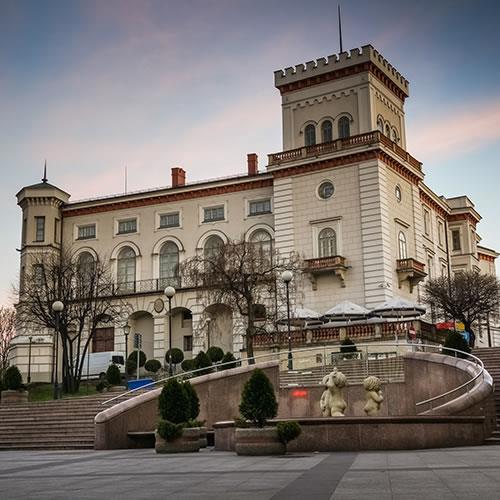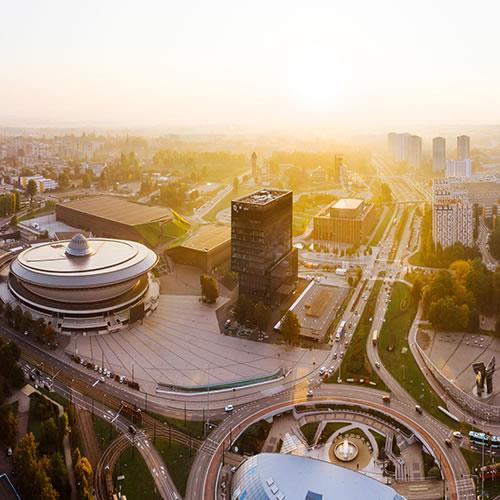


The Silesian Voivodeship, in south-central Poland, is one of the richest areas of the country and the most densely-populated. The capital of Silesia (Slask in Polish) is Katowice, one of the most industrialized cities in the country, and definitely one of the wealthiest. Other important cities in the region include Bielsko-Biala, known for its exquisite examples of Art Nouveau architecture and its ski slopes in the Silesian Beskids; and Czestochowa, a popular Catholic pilgrimage site best-known for the Pauline monastery of Jasna Gora and the Black Madonna painting, believed to have been painted by St. Luke, that is housed there.
Poland`s capital is a metropolis of three million people, a far cry from the small village settled around the market square 700 years ago. Warsaw has survived indignity and strife; three partitions of Poland; a carpet-bombing during World War II; and later the Communist regime. Today Warsaw is one of Europe`s hubs of art, culture, entertainment and gastronomy.
The southwesternmost voivodeship in Poland is a popular tourist destination. It is sandwiched between the Sudeten mountains and the Silesian Lowlands. In the Lowlands, which is the warmest region of Poland, you will find the region`s largest city, Wroclaw. Closer to the Sudetes you will find Jelenia Gora, boasting the oldest spa district in Poland and multiple ski resorts.
Greater Poland (west-central Poland) is known as the country`s `cradle`, as it was the area of the country that saw the rise of the very first Polish royal house. Poznan, the region`s capital, is one of the oldest major cities in Poland. The very first Roman Catholic cathedral in Poland was built here in 968 CE, located on Cathedral Island in the middle of the Warta River.
Lesser Poland, corresponding roughly to southeast Poland, sits in the Vistula river valley and the Tatra Mountains. The `winter capital of Poland`, Zakopane, is the Tatras` largest town and is a great place for skiing and hiking. The capital of Lesser Poland is Krakow, whose Old Town was designated one of the very first UNESCO World Heritage Sites in the 1970s.
Lublin Voivodeship, close to the border with Belarus and Ukraine, is full of beautiful historic sights. The capital of this region is Lublin, known for Lublin Castle, one of the oldest castles in Poland open to the public. Zamosc is located 55 miles to the southeast of Lublin, and is one of the best-preserved examples of a Renaissance town in Europe.
West Pomerania is the northwesternmost voivoideship in Poland. It is one of the most popular tourist regions due to its position on the Baltic Sea coast and for other attractions like the Wkrzanska Forest, Drawa National Park, and Wolin National Park. The capital of the region is historic Szczecin, settled in the ninth century and located on the Oder River.
Polish Pomerania covers much of the northwestern portion of the country, including a large portion of the country`s Baltic Sea coastline. Pomerania has a few large cities, but for the most part it is rural, with lakes, farms, valleys, fields, forests, and small villages and towns. Many of Poland`s oldest cities and towns, such as Gdansk, are located here.
Kuyavia-Pomerania consists of Kuyavia to the west, with Bydgoszcz as its capital; and Royal Prussia, with Torun as its capital. Bydgoszcz is well-known as `Little Berlin` due to its eclectic architectural styles. Torun is one of the oldest cities in Poland, 1,200 years old, and its Old Town area, unscathed after World War II, is a UNESCO World Heritage Site.